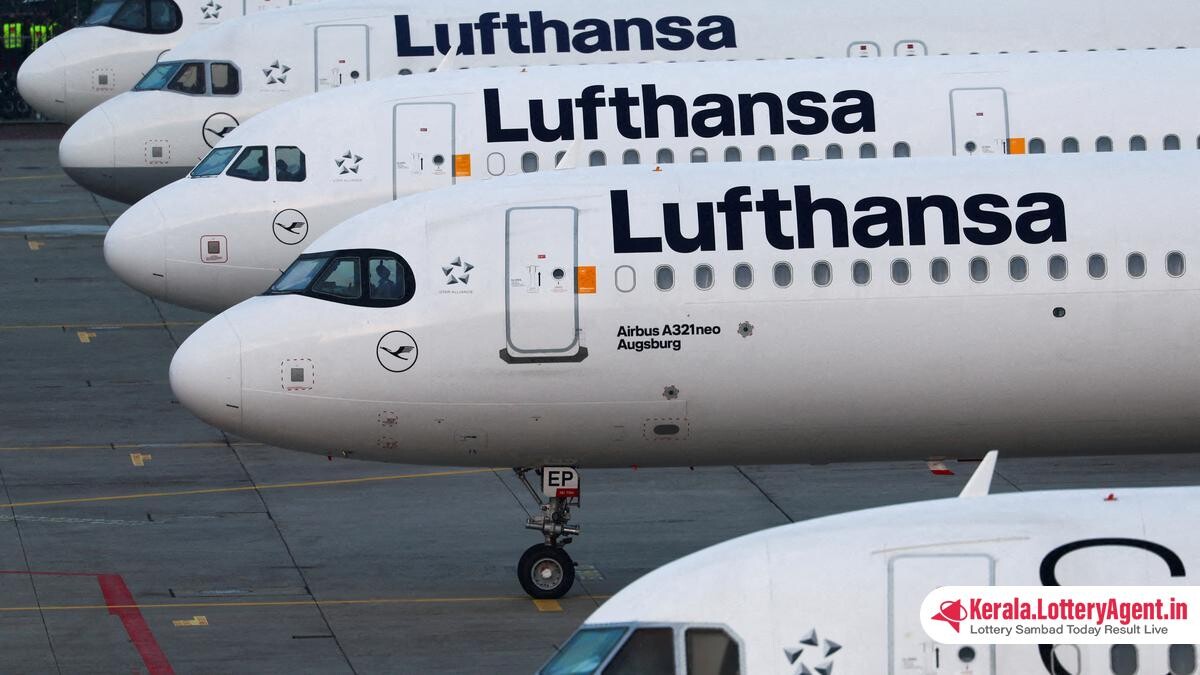
In response to escalating tensions in the Middle East, German airline Lufthansa announced on Friday a continuation of its suspended flight operations to and from Tehran. This precautionary step comes amidst a heightened security backdrop, affecting the airspace over a region that has been center stage for geopolitical strife.
“The airline is also no longer using Iranian airspace,” explained a Lufthansa spokesperson. This departure from previous practices where flights traversed Iran signifies a notable shift in the company’s operational protocols. Citing safety as their utmost concern, Lufthansa’s decision reflects the industry’s priority on ensuring the well-being of its passengers and crew in face of potential risks.
Lufthansa’s subsidiary, Austrian Airlines, has aligned with this approach, taking similar measures of their own. Both carriers have a legacy of prioritizing safety and seem intent on maintaining this ethos even at the expense of potential revenue. Since April 6, flights to the Iranian capital had been put on hold, with the aviation giants waiting for a stable situation before resuming their usually scheduled services.
While Lufthansa has restrained from detailing specific reasons for the flight suspension, Austrian Airlines has openly acknowledged the undercurrent of uncertainty tied to the “current situation in the Middle East.” In a public statement, Austrian Airlines placed an emphasis on the security of their operations, “For Austrian Airlines, the safety of its passengers and crews has top priority. The situation in the Middle East is being evaluated on an ongoing basis. To this end, Austrian is in close contact with the authorities,” ensuring an informed decision-making process.
These aviation decisions have surfaced following an attack in Syria, attributed to Israel, that resulted in the deaths of two Iranian generals. The tense atmosphere enabled by such incidents only adds to the complexity of operating in the region. An increase in Israeli military action against Iran-aligned targets in Syria has been observed in recent months, spurred on by the conflict in the Gaza Strip which began in earnest last October.
Israel’s ongoing strategic operations within Syria’s borders present a potential hazard for civilian airlines, as misidentifications or missteps could lead to tragic consequences. As a result, civilian airlines such as Lufthansa remain vigilant and opt to reroute or suspend flights to avoid any areas where their aircraft might be at risk.
While Iran remains a significant cultural and economic hub in the Middle East, current hostilities influence the accessibility of the country by air. Airlines across the globe watch these geopolitical developments closely, as they could dictate further alterations to air traffic routes and affect the wider scheduling of international flights.
Passenger and airline staff safety hinges upon the balanced assessment of risks and proactive measures taken by airlines. Lufthansa and Austrian Airlines have made it clear that they are not willing to compromise on these aspects and are prepared to sustain service disruptions to uphold their safety commitments. The ongoing evaluation of risk by these carriers demonstrates a continuous effort to navigate a turbulent geopolitical landscape.
Presently, it remains to be seen when Lufthansa and Austrian Airlines will resume their Tehran-bound services. With the suspension currently set to last at least until April 18, travelers and those monitoring the situation will be looking for signs of tempering tensions that could allow for a resumption of regular flight operations in the sensitive skies over Iran.
In the interim, alternative routes and strategies are being employed by affected airlines to minimize the disruption to passengers, as the Middle East’s airspace dynamic continues to evolve with the geopolitical shifts of the time. The decisions of Lufthansa and Austrian Airlines to avoid Iranian airspace underscore an industry-wide adherence to ‘safety first’ – a principle that remains non-negotiable, even amidst the complex tapestry of international relations.












